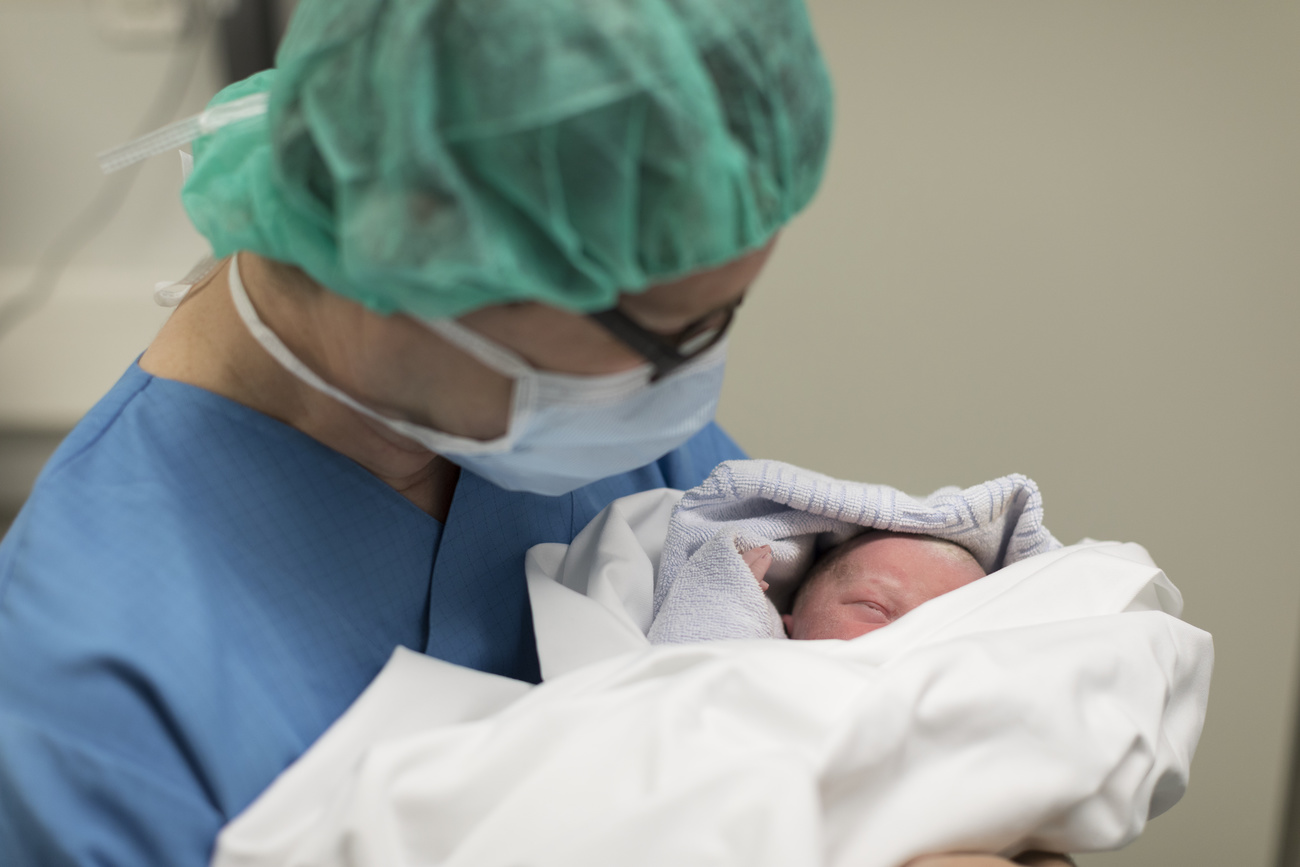
Swiss birth rate hits all-time low

The birth rate in Switzerland last year fell to 1.39 children per woman, below the European average, Swiss public radio, RTSExternal link, reported.
According to the latest figures from the Federal Statistical Office (FSO), the Swiss birth rate has fallen to its lowest level in 20 years, with 1.39 children per woman. This drop could be due to financial or family policy reasons, says Valérie-Anne Ryser, a social scientist at the University of Lausanne.
In 2022 the number of births in Switzerland decreased by 8.5% compared with 2021. Since 2010, the birth rate has fluctuated steadily around 1.5 children per woman, but in 2022 it fell to 1.39.
According Ryser, there could be several reasons for this drop in fertility rate. It could be cyclical and related to the Covid-19 crisis. “The various semi-lockdowns we have experienced might have created a sense of insecurity among people, who decided to have fewer children,” she told RTS.
+ In Switzerland, having a child is becoming a luxury
This phenomenon has been observed elsewhere in Europe, particularly in the southern countries, which have been hard hit by the Covid-19 pandemic, high unemployment and major economic problems. “We’re seeing this decline in a number of countries around us,” Ryser said.
Another possible cause could be the lack of flexibility in family policies in Switzerland. “In Swiss society, women are still considered to be responsible for psrenthood, in the sense that paternity leave has recently been introduced and is short, even by European standards,” Ryser explained.
+ Geneva to introduce pioneering parental leave scheme
Finally, the drop in the birth rate could also be due to a deliberate choice not to have children. “We can see that at the moment there is a lot of discussion about what it means for a couple to have a child, and there is also a lot of debate about the responsibility that comes with having a child,” explains Ryser.
However, she believes that it is still difficult to know whether this figure of 1.39 children per woman is “a trend that will be confirmed in the future or whether it is purely cyclical”.

In compliance with the JTI standards
More: SWI swissinfo.ch certified by the Journalism Trust Initiative





























You can find an overview of ongoing debates with our journalists here . Please join us!
If you want to start a conversation about a topic raised in this article or want to report factual errors, email us at english@swissinfo.ch.